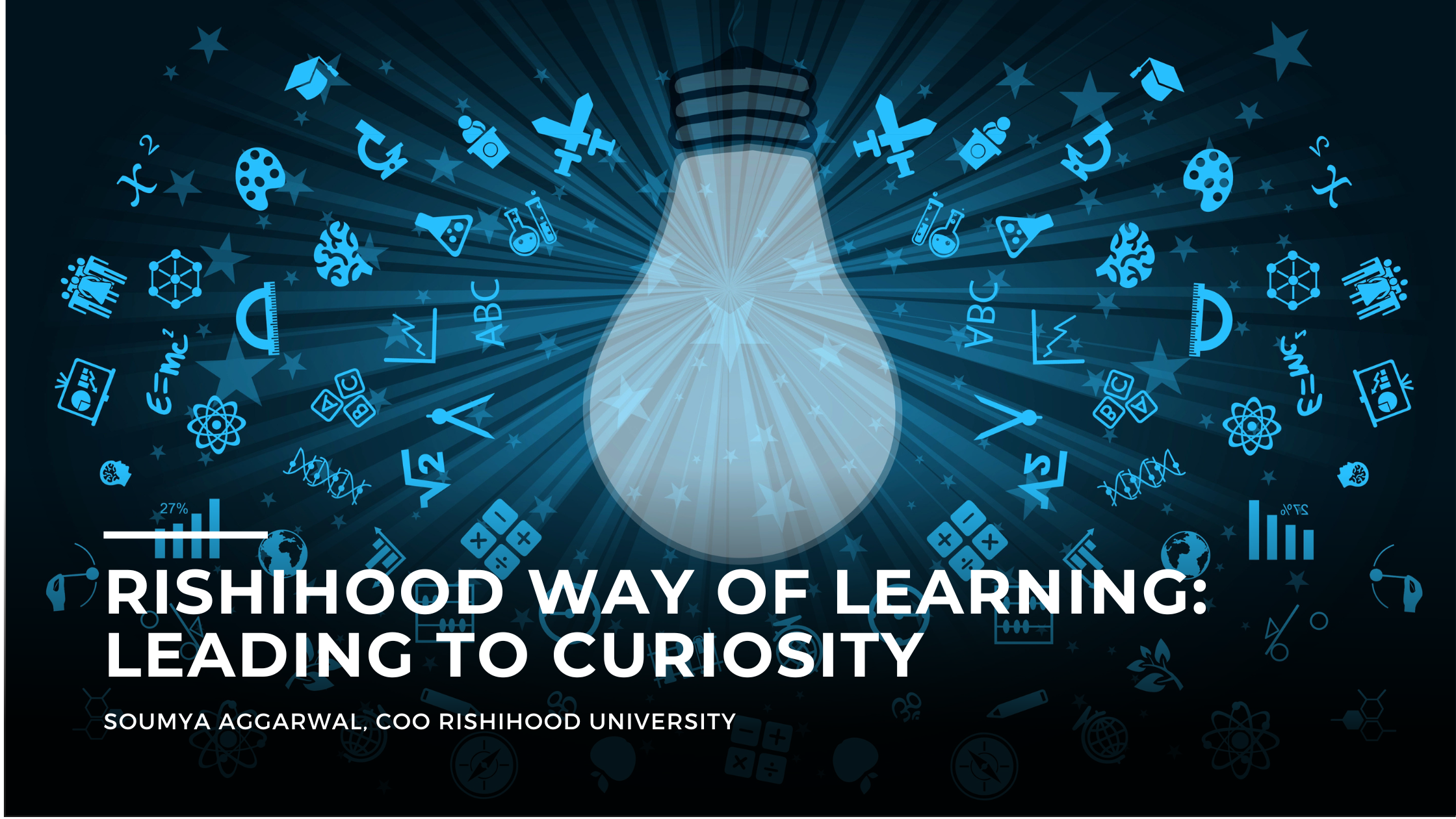As my 2-year-old daughter shows her new tantrums every day, her curious mind, with endless questions, amazes me about the capability of the human mind. Not just my daughter but every child is born with innate possibilities, but sadly, our current education system has failed to nurture them. Instead, it creates factory workers with the fundamental goal of success in defined societal metrics.
Education, in any form, should lead to curiosity. It is a natural human trait that drives us to learn and discover new things. It is essential to learning and personal growth and can lead to lifelong learning and intellectual development. In addition, research suggests that a curious mind leads to increased creativity and problem-solving skills, as it encourages students to think outside the box and consider multiple perspectives.
In Rishihood, Jigyasa: A desire to learn is closely related to curiosity. This is an outcome of a simple intellectual humility of knowing in various ways or, as they say, “I know that I do not know”. Traits that define curiosity are a) Hunger, commitment, and tenacity; b) Humility and respect for others; c) A sense of wonder towards the creation and d) Self-study and willingness to continuously learn, unlearn and relearn.
How are we encouraging curiosity in the learning process?
The key innovation Rishihood brings into the classroom is a grand challenge. All learners should be motivated to solve a global grand challenge, encouraging them to learn because learning helps solve the problem. Today there is no motivation to learn because information is available on demand from the best sources. Only a problem-solving orientation can create the hunger to learn and personalize learning. In addition to this, we also focus on:
- Providing opportunities for student-centered, hands-on learning: Allowing students to explore, discover, and solve problems independently can foster curiosity and encourage them to ask questions and seek out new information.
- Promising open-ended and creative projects: Allowing students to come up with their projects or solutions to problems can foster creativity and encourage students to think outside the box.
- Encouraging questioning and inquiry: Encouraging students to ask questions and seek out answers can foster a curious mindset.
- Using a variety of teaching methods: Incorporating different teaching methods, such as lectures, discussions, demonstrations, and hands-on activities, can help to keep students engaged and encourage them to explore different ways of learning.
- Fostering a love of learning: Creating a positive and supportive learning environment that encourages students to pursue their interests and passions can promote a love of learning and encourage curiosity.
- Providing access to resources: Giving students access to a variety of resources, such as books, articles, and online materials, can help to foster a curious mindset and encourage students to seek out new information on their own.
What does this lead to?
- A growth mindset: A growth mindset believes that intelligence and abilities can be developed through effort and learning by providing opportunities for students to take risks and make mistakes without fear of failure.
- Exploration and inquiry by providing access to a wide range of materials and resources and encouraging students to ask questions and seek answers. This can include field trips, hands-on projects, and interactive lessons that allow students to learn through experimentation and discovery.
- Critical thinking skills by providing opportunities for students to analyze, synthesize, and evaluate information. This can include discussions, debates, and problem-based learning activities that allow students to apply their knowledge and skills to real-world situations.
- Collaboration and communication through group projects, class discussions, and opportunities for students to share their ideas and perspectives with their peers.
In conclusion, educational institutes play a crucial role in nurturing curious children. By encouraging a growth mindset, exploration and inquiry, critical thinking skills, collaboration and communication, and a supportive and inclusive environment, educational institutes can help students develop the meta-skill of “learning how to learn.” To survive in a VUCA world, we need to remain lifelong learners with the ability to keep learning.
– Soumya Aggarwal, COO, Rishihood University

